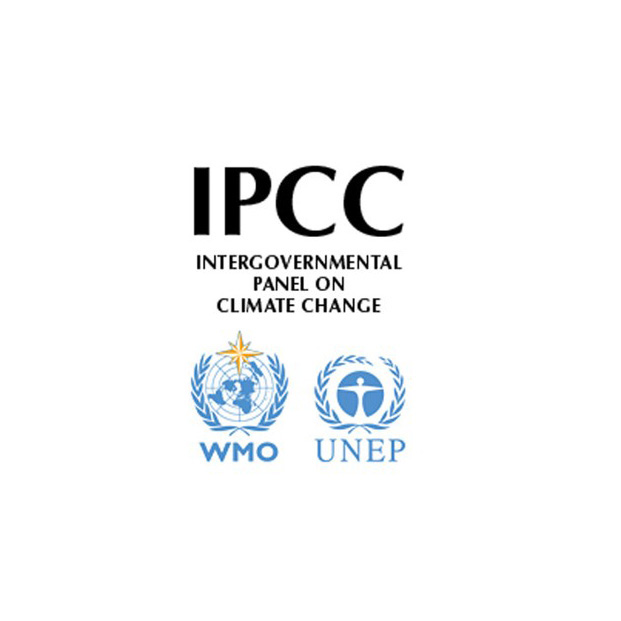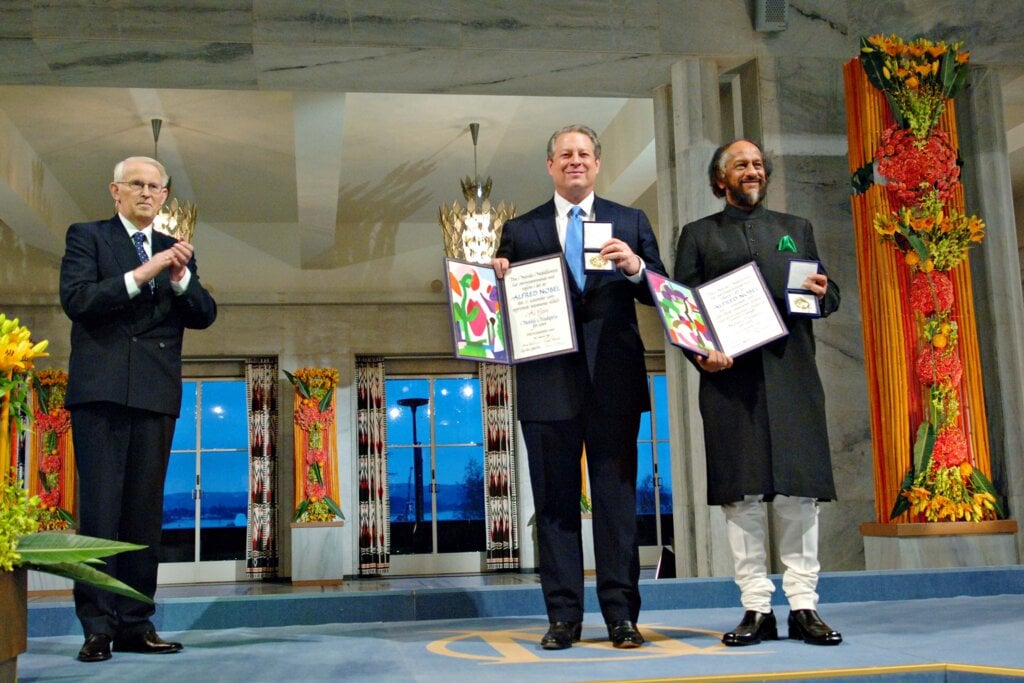Intergovernmental Panel on Climate Change
Speed read
The Intergovernmental Panel of Climate Change (IPCC) was awarded the Nobel Peace Prize, jointly with Al Gore, for their efforts to disseminate greater knowledge about man-made climate change, and to lay the foundations for the measures that are needed to counteract such change.

Full name: Intergovernmental Panel on Climate Change (IPCC)
Native name: Intergovernmental Panel on Climate Change
Founded: 1988, New York, NY, USA
Date awarded: 12 October 2007
Global agents for the environment
The Intergovernmental Panel on Climate Change (IPCC) was established by the World Meteorological Organisation and the UN Environment Programme in 1988. The panel documents the scientific basis for climate change by summarising the efforts of thousands of scientists. Its reports form the foundation for international climate policies and have created a broader understanding of the relationship between human activities and global warming. Climate change threatens our conditions of life and can lead to large-scale migrations and greater competition for the earth’s resources. Fighting this threat is therefore crucial for preventing conflict. It is therefore an effective peace strategy to strengthen nations’ abilities to adapt to climate change.

From the announcement speech
The Norwegian Nobel Committee has decided that the Nobel Peace Prize for 2007 is to be shared, in two equal parts, between the Intergovernmental Panel on Climate Change (IPCC) and Albert Arnold (Al) Gore Jr. for their efforts to build up and disseminate greater knowledge about man-made climate change, and to lay the foundations for the measures that are needed to counteract such change. Extensive climate changes may induce large-scale migration and lead to greater competition for the earth’s resources. There may be increased danger of violent conflicts and wars, within and between states. Ole Danbolt Mjøs, Oslo, 12 October 2007.
Climate changes have different impacts
It is not necessarily those countries that are responsible for the greatest emissions that will suffer most as a result of climate changes. On the contrary, it is the poorest countries that will be hardest hit. The Chairman of the IPCC, Dr. Rajenda K. Pachauri has said that he is concerned about the fact that some countries are disregarding the impact that their emissions are having in other countries. He thinks that the ethical dimensions of this problem are being completely ignored. This has also been expressed previously by Al Gore, who said that: “The climate crisis is not a political issue – it is a moral and spiritual challenge to all of humanity.”
Learn more
Read or watch the Nobel Prize lecture by R. K. Pachauri, Chairman of the Intergovernmental Panel on Climate Change.
Disclaimer: Every effort has been made by the publisher to credit organisations and individuals with regard to the supply of photographs. Please notify the publishers regarding corrections.
Nobel Prizes and laureates
Six prizes were awarded for achievements that have conferred the greatest benefit to humankind. The 12 laureates' work and discoveries range from proteins' structures and machine learning to fighting for a world free of nuclear weapons.
See them all presented here.
